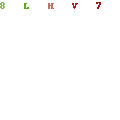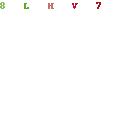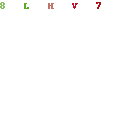
They are various schools, that not only differs in the views of minor things, but also things regarding creed and faith. They are Shiite, who some of them claim that Muhammad wasn't supposed be the Messenger of Allah, it should have been Ali. They are also other group like the Mu'tzilite, Khawarij, Qadiani and so on.
Why are the Muslim so disunited, if Islam is the true religion?
Answer
The answer is very simple. It is because the Quran is simply a guidance to mankind. Being the fact that the Islam, brought by the Quran is the one and only religion recognized by Allah, that does not means that everyone will accept and steadfast in it. Allah s.w.t. said :
(( There is no compulsion in religion. The right direction is henceforth distinct from error. And he who rejects false deities and believes in Allah has grabbed a strong handhold that will never break. Allah is Hearer, Knower )
Allah said that he who rejects false deities, means that surely there are who chose false deities instead of the Guidance of Allah. In the Quran itself, Allah had talked about the hypocrites, the idol worshippers, the atheist, the Jews and the Christians. That means that not everyone will received the light of the guidance.
The same thing happens to the Muslims. Not everyone will adhere to the true teaching of Islam and the Prophet Muhammad s.a.w. The Prophet had already warned the Muslim :
(( By He who Holds my soul! My people will break into 73 groups, the Christians will break into 72 groups, and the Jews will break into 71 groups. All of them shall be cast in Hell, except one )) The companions asked "Who are they, O Messenger of Allah?" He said "Al-Jamaah"
With this it is not weird to see the separation between the Muslim. Like we said above, it is not fair to blame the religion if there's anything wrong with the followers. Indeed Islam is the true religion, the one and only that is recognized by Allah.
And Allah Knows best.
Bibliography
Books
1. Rahmat Allah Ibnu Khalil Al-Rahman, Izhar Al-Haq, Ministry Of Islamic Affairs, Maghribi.
2. Syeikh Ahmad Hoosen Deedat, The Choice, Saba Islamic Media, July 1995, Malaysia.
3. Priests Embracing Islam, Conveying Islamic Message Society, Egypt.
4. Dr. Abdullah Yasin, Tafsir Surah Al-Fatihah, Edisi Kedua, Penerbitan Al-Azim, 1996, Kuala Lumpur, Malaysia.
5. Islam Our Choice, Ashraf Publications, 437/D-G. E. Karachi-5, Pakistan.
World Wide Web
1. http://www.islamqa.com
2. http://www.answeringchristian.com
3. http://www.islamtomorrow.com
4. http://www.newmuslims.tk
5. http://thetruereligion.org












.jpg)





